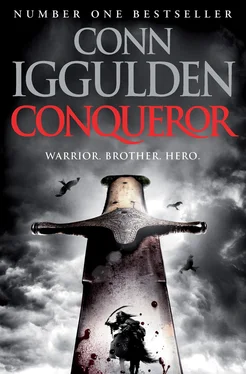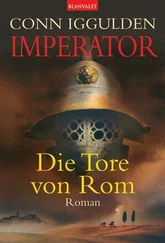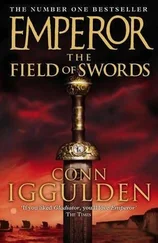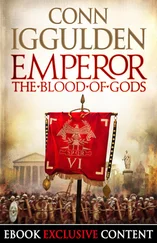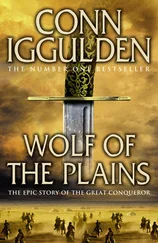There had been so few gatherings since the first one called by Genghis that there were hardly any traditions to follow. A great pavilion had been erected in front of the city, and as the sun cleared the eastern hills, Guyuk dismounted there and passed his reins to a servant. He walked to his place and stood in front of the silk tent as the first group approached him. Unless his bladder filled to bursting, he would not enter the pavilion that day, nor would he sit, no matter how hot the sun became. The nation had to see him become khan.
Baidur and Mongke were conspicuous in that first group, as well as Sorhatani, Kublai and her other sons. The first four hundred contained the heads of all the major families, for once deprived of their retainers, servants and slaves. Most of them were dressed in colourful silks, or the plainest armour, depending on their sense of occasion. Even the banners of rank were denied to them. They would approach Guyuk in simple humility, to bend the knee and give their oaths.
Even within that group there was a hierarchy. Torogene came first, then Sorhatani. The two women had ruled the nation alone, keeping it intact through the death of Ogedai Khan. Guyuk saw only satisfaction in his mother’s face as she knelt to him. He barely let her touch the ground before he raised her up and embraced her.
He was not so quick with Sorhatani. Though her oath sealed her loyalty, he had never been comfortable with the woman who controlled the homeland. In time, he thought he would grant her titles to Mongke, as his father should have done. She had survived, so she had luck, but women were too fickle, too likely to make some grievous error. Mongke would never jump without thinking, Guyuk was certain. He watched in pleasure as Mongke came next and repeated the oath he had given in a far land, the first stone falling that brought them all to that spot.
Kublai followed and Guyuk was struck by the keen intelligence in the younger man’s eyes as he knelt and spoke the words of gers, horses, salt and blood. He too would need some position of authority in time. Guyuk began to revel in such decisions, able at last to think as a khan, rather than just dream.
The day wore on, a parade of faces until he could hardly distinguish between them. Thousands came to the pavilion: heads of families, rulers of lands thousands of miles apart. Some of them already showed signs of intermarriage, so that the eldest children of Chulgetei had the features of Koryo. Guyuk formed an idea of ordering them to breed true, keeping the Mongol stock pure before it was swallowed in the flood of subject races. The mere thought of exercising such power was like airag in his blood, making his heart pound. After this day, his word would be law for a million people – and millions more under their rule. The nation had grown beyond anything Genghis might once have imagined.
As evening came, Guyuk toured the great camps. There was no single moment when he became khan to universal acclamation. Instead, he rode from place to place, allowing thousands of his people to kneel and chant their oaths. He had warriors ready to strike down anyone who refused, but nothing came of his worries as the light began to fade and torches were lit. He took food and returned to the palace for a time to change clothes and relieve his bowels and aching bladder. Before dawn, he was out again, travelling to the very least of those he would rule: the tanner families and a host of workers from many nations. They cried out in awe at their only chance to see the face of the khan, straining in the dawn light for a single glimpse they would remember for ever.
As the sun rose again, Guyuk felt suffused in its light, lifted by it and made mellow. He was khan and the nation was already settling down to the days of feasting that would follow. Even the thought of Batu in his Russian fiefdom had become a distant irritant. This was Guyuk’s day. The nation was his at last. He thought of the celebrations that would follow with growing excitement. The palace would be the centre of it: a new generation of youth, tall and beautiful, blowing away the ashes of the past.
Torogene lowered herself onto the bench in the garden pavilion, feeling her husband’s spirit all around her. The summer had lasted a long time, so that the city sweltered. For months, the rare heat had built to storms, then been released into a day or two of sweet coolness before it dried out and the process began again. The air itself was heavy at such times, thick with the promise of rain. Dogs lay panting on the street corners and each dawn found a body or two to be cleared away, or a woman weeping. Torogene already missed the powers she had known. Before Guyuk was khan, she could have sent the Day Guards to beat a confession from a dozen witnesses, or to evict a family of thieves, dumping them all on the roads outside the city. Overnight, they were no longer hers to command and she could only petition her son alongside a thousand others.
As she sat among the drifts of leaves, Torogene searched for some feeling of peace, but could not find it, even in Sorhatani’s company.
‘You cannot tell me you are happy to be leaving the city,’ Sorhatani said.
Torogene patted the bench beside her, but her friend did not want to sit down.
‘No young khan should have his mother watching every move, every mistake. The old must apparently make way for the new.’ Torogene spoke the words reluctantly, echoing Guyuk’s pompous speech to her just that morning. ‘I have a fine palace, built for me by Ogedai. I will be comfortable in my retirement. And I am old. I can hardly believe how weary I feel on some days.’
‘He’s getting rid of you,’ Sorhatani said. She picked up a slender branch from the path. It must have fallen just that morning or the Chin gardeners would already have cleared it away. It flexed in her hands like a whip. ‘A son should honour what you achieved, keeping the nation together when it threatened to fly apart.’
‘Even so, he is khan. I worked years for it. Should I complain now that I have my desire? What sort of a fool would I be then?’
‘A mother,’ Sorhatani said. ‘We are all fools with our sons. We wipe them and suckle them and all we expect is for them to be grateful to the end of their days.’
She chuckled, her mood turning in an instant. Torogene smiled with her, though in truth she had been hurt by her son’s commands.
‘He has not threatened to send you away, Sorhatani,’ she said.
‘No, because he still lavishes his attention on Mongke. Orlok of the armies. It is more than my son even wanted. I swear we never planned for that, never.’
‘I know. Guyuk took my advice once, at least. Mongke has the bloodline from Genghis and the tumans will follow him. My son trusts him completely, Sorhatani. That is important.’
Sorhatani kept her silence. It was true Mongke had risen in Guyuk’s first season as khan, just as she had predicted. Kublai, though, would never lead armies under Guyuk. Something in the two men brought out the worst in each of them. Twice she had sent Kublai away on some errand before he ruined himself in Guyuk’s presence. They angered each other like two cats and neither she nor Kublai could explain it satisfactorily. There were times when she wished Guyuk would send her back to the homeland, away from the heat and smells and crowds of the city, away from the politics that ruined every peaceful day. Even in that, she had her suspicions. She did not think Guyuk valued her as an adviser and one memory of his father still troubled her. Years before, Ogedai had asked her to marry his son. The idea could still make her shudder. Ogedai had been too good a man to force her, but Guyuk would have no qualms of that sort. As things stood, the original homeland of Genghis would pass to Mongke on her death, or perhaps one of her other sons if she wrote a will and it was honoured. She could only hope that Guyuk was content to rule the separate khanates. Yet he did not seem to have that sort of vision. In fact, he struck her as exactly the sort of greedy fool who would try to take it all for himself. It was heart-breaking to see such a handsome young man with so many shadows inside him. Power brought out the best in some men, but Guyuk showed no sign of such growth.
Читать дальше
